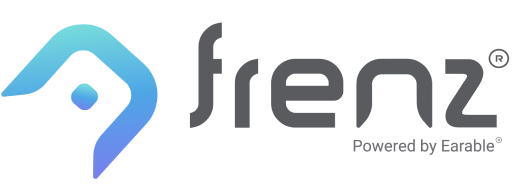Sleep-tracking startup Earable® has raised $6.6 million from lead investor Founders Fund and Smilegate Investment as it prepares to introduce a wearable headset aimed at improving sleep and productivity.
Why it matters: Earable hopes to reawaken the field of sleep tracking, which has been on snooze for several years as most available devices can't provide more than an estimate of the time you spent in bed.
The big question: With dozens of sleep trackers already on the market, how will Earable's device differentiate itself? And will people want to sleep with a headset?
"If someone is struggling with their sleep, they might be willing to wear a headband, but they also might be more sensitive to the disruption caused by it, says Seema Khosla, medical director of the North Dakota Center for Sleep. "The less obtrusive, the less annoying, the better!"
How it works: Earable isn't just a sleep tracker, Tam Vu, the company's founder and chief executive officer, tells Axios.
- The headset includes bone-conduction headphones and biometric sensors designed to improve sleep during the night and focus during the day.
- "We’re not a sleep tracking company. We’re a neuroscience and AI company designed to improve humans' cognitive function," says Vu, who is also an associate professor of computer science at Oxford University.
- Those sensors include an electroencephalogram (EEG) to measure brain signals, an electrooculogram (EOG) to track eye movements, and an electromyograph (EMG) to measure muscle response, as well as others.
What's next: Vu intends for the Earable headset to eventually be capable of sharing medical-grade data with a user's clinician.
- Last year, he co-authored a small study suggesting an early version of the device measured sleep with similar accuracy to what you'd get from a sleep clinic. The findings build on earlier research from 2016 and 2018.
- For now, he plans to sell the tool as a non-medical wellness gadget while he and his team perform more studies.
- "The challenge is we need to make sure the data has been validated, and not just in healthy individuals," says Khosla. "We need to see how this technology behaves in disease states like obstructive sleep apnea, insomnia, [and] heart failure."
One fun thing: It's highly unusual for Founders Fund, the venture firm known both for its contrarian creator Peter Thiel and its early bets on companies including Facebook and SpaceX, to invest in companies that haven't yet generated significant revenue.
- Earable is an exception, and general partner Keith Rabois led the investment, bringing Earable's total funding to $10 million.
- Rabois says he expects the device to help "enhance human potential."
Source: Axios.com



